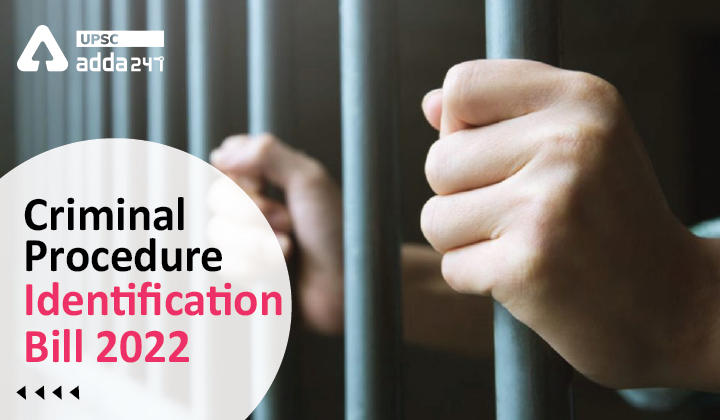Table of Contents
Criminal Procedure Identification Bill 2022: Relevance
- GS 2: Government policies and interventions for development in various sectors and issues arising out of their design and implementation.
Criminal Procedure Identification Bill 2022: Context
- Recently, Government has introduced the Criminal Procedure (Identification) Bill, 2022 to allow the police and prison authorities to collect, store and analyse physical and biological samples including retina and iris scans.
Criminal Procedure Identification Bill 2022: Key points
- The Criminal Procedure (Identification) Bill, 2022 compels certain individuals who are convicted and accused of offences, to share biological personal data.
- The Bill also seeks to replace the Identification of Prisoners Act, 1920 which applied to collection of “measurements” for mostly those who were convicted and who would serve a prison sentence.
Criminal Procedure Identification Bill 2022: Key provisions
- Define “measurements” to include finger impressions, palm-print and foot-print impressions, photographs, iris and retina scan, physical, biological samples and their analysis, etc.
- Empower the National Crime Records Bureau (NCRB) to collect, store and preserve the record of measurements and for sharing, dissemination, destruction and disposal of records.
- Empower a Magistrate to direct any person to give measurements;
- a Magistrate can also direct law enforcement officials to collect fingerprints, footprint impressions and photographs in the case of a specified category of convicted and non-convicted persons;
- Empower police or prison officers to take measurements of any person who resists or refuses to give measurements.
Criminal Procedure Identification Bill 2022: Criticism of the Bill
- Lacks clarity: The Bill does not define several provisions. For example: the Bill says that it provides for collection of measurements for “convicts and other persons” but the expression “other persons” is not defined.
- Conflict with fundamental rights: The opposition member in the Parliament argued that the Bill violates the fundamental rights of citizens including the right to privacy, so the Bill is beyond the legislative competence of the Parliament.
- Article 20(3): The Bill comes in direct contravention with the Article 20(3), which explicitly states that no person accused of any offence shall be compelled to be a witness against himself.
- The Bill also brings to focus rights of prisoners and the right to be forgotten since biometric data can be stored for 75 years.
- While the jurisprudence around the right to be forgotten is still in an early stage in India, the Puttaswamy judgment discusses it as an important part of the fundamental right to privacy.
Read current affairs for UPSC





 TSPSC Group 1 Question Paper 2024, Downl...
TSPSC Group 1 Question Paper 2024, Downl...
 TSPSC Group 1 Answer key 2024 Out, Downl...
TSPSC Group 1 Answer key 2024 Out, Downl...
 UPSC Prelims 2024 Question Paper, Downlo...
UPSC Prelims 2024 Question Paper, Downlo...




